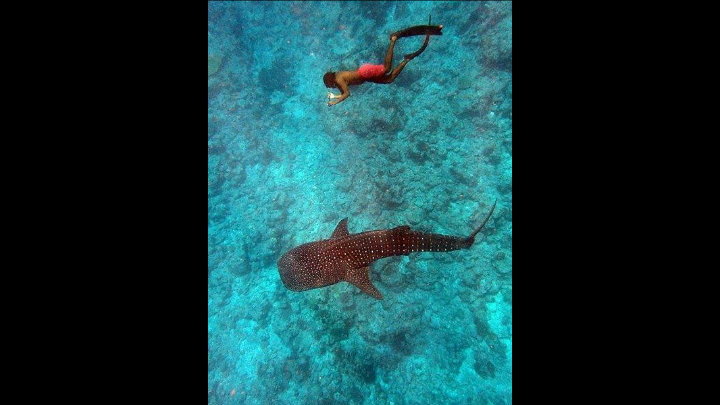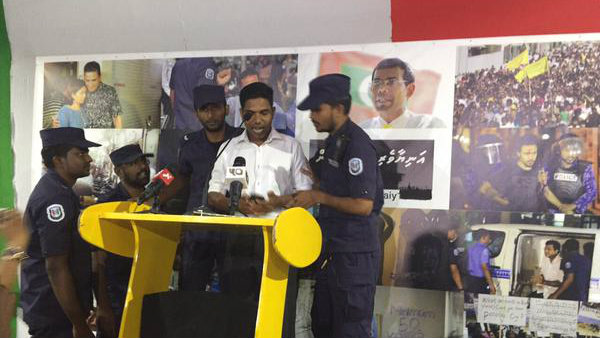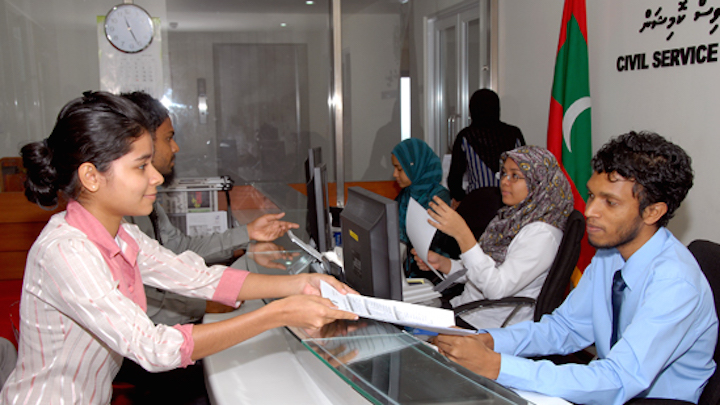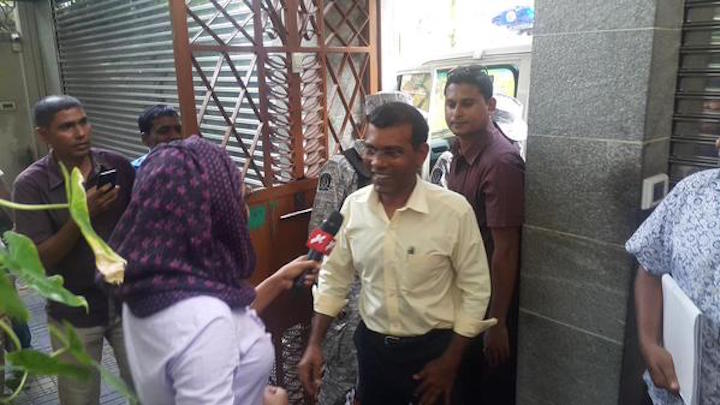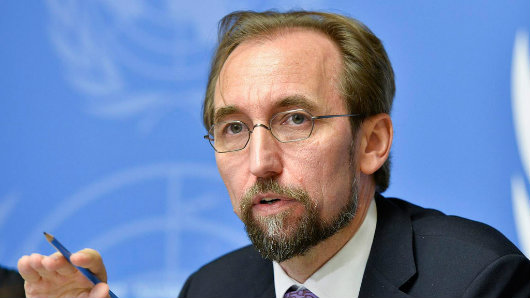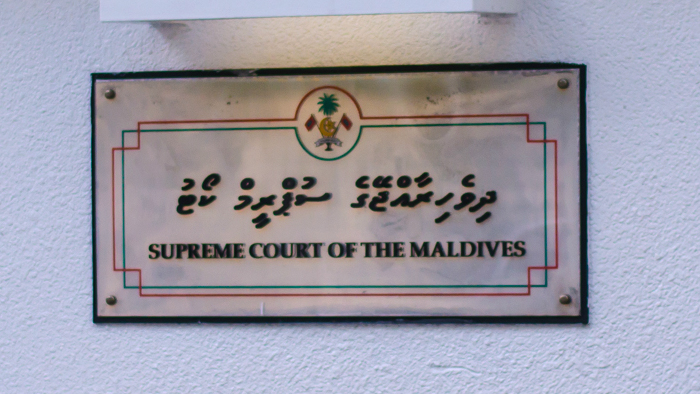Former President Mohamed ‘Anni’ Nasheed was convicted of terrorism and sentenced to 13 years in prison on his 21st wedding anniversary, on March 13.
Following is a translation of a Raajje.mv interview with Nasheed’s wife, Laila Ali. This is the first time the former first lady spoke to local media on the struggle she and her daughters have faced throughout Nasheed’s long campaign for democracy in the Maldives.
Nasheed has two daughters, Meera Nasheed and Zaya Nasheed.
Raajje.mv: Were you ever scared of Nasheed getting arrested?
Laila Ali: No, it’s not even an issue. I knew a simple thing [Nasheed did] could put him in jail then. The chances of him getting arrested were greater before [during President Maumoon Abdul Gayoom’s regime] than now. Once when Anni was under house arrest, a BBC reporter asked me for an interview. I hesitated at first, but then thought I would give the interview, no matter what happens.
Raaje.mv: How did you feel when Nasheed was taken to jail?
LA: It is not easy for me to share what I go through. I’m not the kind of person to cry and stay in bed. My children would never have seen me in that state. When Anni was arrested, I had to consider how it might effect our children, and I had to lie to them quite a lot.
Once he was arrested two weeks before I was due to give birth to Zaya [second daughter]. He was an MP at the time. Meera [their first daughter] was four years then. I had to lie a lot as she suddenly lost a father who spent a lot of time with her. I told her he had gone to another island, that he had called when she was sleeping. Or sometimes, I would tell her there is no phone on the island he was staying at. That is how I held on. That was the most difficult thing I had to do. In one way, it’s easier now that they are older and they know what is going on.
Raajje.mv: Do your children know the nature of Nasheed’s work?
LA: They know more and more as they grow older. They did not like it earlier. They would say their father prioritized the Maldives over them. They used to complain a lot, also saying he did not give them enough time. But not anymore. They know what is happening now.
I tried to keep Anni at a distance from the kids. But how can I keep all of it at a distance after the coup? They see what is happening on TV. Our children knew how to read and write. I don’t try to keep it a secret any longer.
Raajje.mv: Does Nasheed speak of the food served in prison?
LA: No. He does not have specific preferences for food. He likes simple food. The cook at Muleeaage [former presidential palace] said he was bored from cooking the same dishes. We both like to eat simple food.
But there is a special drink he likes to have in the morning, tea with condensed milk. I get quite sad when I have that cup of tea, I think of him.
Raajje.mv: Did you notice a difference in Nasheed after February 7,8?
LA: He spent a lot of time with the children after that. He took a lot more care in allocating time for them. Even before that, he always used to help the girls with their homework.
He spent the whole month of December alone with the girls. I didn’t go. After the coup, I think he realized how much was at stake.
Raajje.mv: What is your most significant memory from the events of February 7?
LA: After the Sri Lankan Independence Day celebrations, we had just entered Muleeaage when we heard about the protests outside. Anni asked Tholhath [former Defence Minister] about the protests, and he told Anni not to worry, all is good, the military is on your side. Now, every time I see Tholhath, I remember that, because what he said did not match up with what actually happened.
Raajje.mv: Did you meet with Nasheed before he announced his resignation?
LA: I met with him much later that night. I was at another house that day. I was thinking of staying at Muleeage. I spoke to Anni twice on the phone.
My mother and family members kept telephoning me, telling me to leave, telling me it was no longer safe. But every time I checked, the military officers were keeping guard. But then at 8:30am, I saw them sit down, one of them started smoking a cigarette. That was when I thought I should leave.
I left with my daughters, and just their school books. We went to another house. We came to Yaagoothuge [Laila’s home] after sunset. At the time, Anni was at Canaryge [Nasheed’s paternal home]. I was set to leave the next day with my eldest daughter. I met him at Kenereege between 10:30 and 11:00 pm with the younger daughter, Zaya. He could not meet Meera.
Anni came to Yagoothuge the next day as I was getting ready to leave. I left as planned. I did not see much of what happened the next day.
Raajje.mv: What did you speak of during your last call?
LA: He always tried not to show any anxiety, even at the last moment. He told me everything is going to be all right, told me not to leave [Muleeage]. But I left after I saw what was happening that morning. We could feel the effect of tear gas at Muleeaage in the morning.
Especially after the security guards sat down, I decided to leave with my daughters. I thought, if an angry mob came—even if it wasn’t to hurt us—they might do anything. So I left without taking the risk.
He called me and told me that he had no choice left. He said it was the best decision for the time and that he had no choice. After that, he resigned. I can’t quite remember now if [the phone call] was before he left the military barracks or after he resigned.
[After I left Muleeage] I did not switch the TV on. I did not want my children to know. So I myself did know what was going on.
Raajje.mv: How does the cell where Nasheed is being held now compare with the Dhoonidhoo cells he used to be held in?
LA: They didn’t show me the cell this time. They said the cell was too close to where other detainees were kept. They said I would have to walk in front of their cells to go there, so they did not allow me to go.
One evening when I visited Dhoonidhoo with my daughter, I heard people calling out to him, clapping and shouting out “President” when he walked by. So I knew he was kept near other detainees.
Anni said the place was fine. There were problems with the toilet at first. But the other day, he said [the toilet] had been fixed. Nazim [former Defence Minister] is now kept in the room he was held in. Even if the cell wasn’t fine, he may not say so.
Raajje.mv: Did he say he was beaten?
LA: The day [when he was first brought to the court] he complained of pains in his shoulder due to his fall. Even after ten days. He showed me two places on his shoulder. But he is fine now after the physiotherapy. Everyone thought his thumb had been hurt the most, but it was his shoulder. The doctor went to Dhoonidhoo to examine him later as well.
Raajje.mv: Has President Abdulla Yameen spoken with you?
LA: He has never spoken to me. But we have met. I went to his inauguration as well. Once he walked by me in a hotel in Sri Lanka. He pretended not to see me. He is a friend of my father. He checked on my father until he passed away. But he doesn’t acknowledge me at all.
Raajje.mv: How would you portray President Maumoon Abdul Gayoom, considering the torture inflicted on President Nasheed during his regime?
LA: Maumoon has a charisma. No matter what he does. When Maumoon does something, I think he tries to cover it up well. He wants a good reputation internationally. I don’t think Yameen has that [charisma]. He doesn’t care if what he does is right or wrong, he’s doing whatever he wants, he doesn’t even try to cover it up.
Raajje.mv: What does Nasheed do with his free time at home?
LA: He had a fish tank [smiling]. He used to check to see how many fishes had spawned. He would separate the small fishes from the bigger ones, just in case they would try to eat the little ones. Other than that he wrote books. He was getting ready to write one in Dhoonidhoo too.
Raajje.mv: Did you send President Nasheed a radio?
LA: They would not give him the first radio I sent. But he got the second one. I saw him last on Friday. He was very sad when he told me to tell Akram that he wants to listen to a programme on cricket. Now he can listen to it. But there is no TV.
Raajje.mv: Tell us of an unforgettable memory?
LA: When Meera was only four years old, Anni was banished to Angolhitheemu [in Raa Atoll]. I was due to give birth to Zaya in two weeks. He was accused of theft. It would have been easier if he had actually stolen something. That affected me a lot. I can never forget that.
I can still remember how Meera used to cry. Anni came to the hospital once after I gave birth. He took a photo with Zaya. I had to hide it from Meera. I told her that her father wasn’t in Malé. I hid the photo here and there so Meera would not see it, finally I lost it.
I do not think I will feel that kind of pain ever again. Two weeks after giving birth, I was up, dropping Meera off to school and all. She was crying all the time. Asking for her father. How could I explain to a four year old what had happened? He used to take her for a walk in the morning, take her swimming, feed her and bath her.
Raajje.mv: Did President Nasheed send a letter to your daughters?
LA: Recently, he asked for official permission and sent them a letter. It came to my hands. He told them not to harbor any hate, and to forgive. Always, even now, he speaks about forgiveness. It’s not just in public, he speaks of forgiveness even in the letter to his children.
Raajje.mv: How have people reacted after the sentence?
LA: A lot of people are coming to see me. I receive a lot of texts, a lot of calls. I have been taking fewer calls these past few days. People cry over the phone. What can I do? I have to comfort them. I know they are sad, but what can I say?
Likes (1)Dislikes
(1)Dislikes (0)
(0)
 (0)Dislikes
(0)Dislikes (0)
(0)
